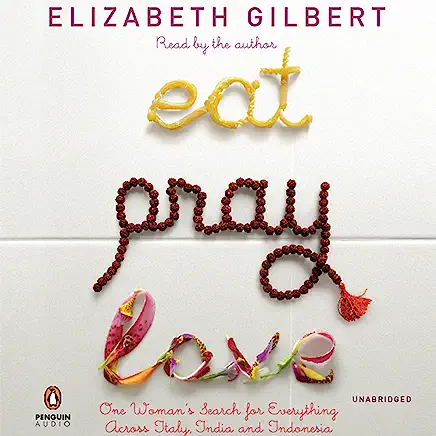Elizabeth Gilbert, the best-selling American author, announced last week that she would soon be publishing a novel set in Russia. In light of a Russo-phobic public relations campaign unleashed against her, the Eat, Pray, Love author has since rescinded those plans.
In a “massive outpouring of reactions,” Ukrainian readers expressed “anger, sorrow, disappointment and pain,” over the book’s setting, Gilbert said. This led the author to make a self-described “course correction,” shelving the novel indefinitely.
Originally slated for a February 2024 release, Gilbert’s The Snow Forest is set in Siberia during the 20th century. It follows “a group of individuals who made a decision [in the 1930s] to remove themselves from society to resist the Soviet government and to try to defend nature against industrialization,” says Gilbert. For 44 years, they manage to live undetected but in 1980, they are discovered by a Soviet geological team. According to The Guardian, “a scholar and linguist is sent to the family’s home to bridge the chasm between modern existence and their ancient, snow forest life.”
Gilbert reported that, over the weekend, she was flooded with messages from Ukrainians telling her it was unacceptable to publish her work. “The fact that I would choose to release a book into the world right now, any book, no matter what the subject of it is, that is set in Russia,” is beyond the pale. That was the consensus amidst the deluge.
Absurd accusations were levied against Gilbert, including that her book would be akin to a novel “glorifying” the “brave Germans” during the Second World War.
According to The Atlantic, “Gilbert’s unpublished book garnered a slew of one-star reviews, all from commenters who hadn’t seen the text. Even though her book doesn’t seem to remotely venerate Russian nationalism, Gilbert committed the sin of setting her narrative in Russia – and for some of her readers, that was a deeply insensitive, borderline-treacherous act.”
The author concluded shortly after her announcement, “It is not the time for this book to be published.” Adding “I do not want to add any harm to a group of people who have already experienced and who are all continuing to experience grievous and extreme harm.” Further, she insisted to her fans that anybody who pre-ordered the book will be “fully refunded.”
Since she announced her decision to pull the book from the publication schedule, Gilbert has been criticized by authors and other writers who feel that caving to the pressure is “setting a terrible precedent.” Even vehement supporters of escalated U.S. involvement in the Ukraine war have admonished Gilbert for participating in her own modern-day book burning.
“In meekly complying with the angriest voices, she accepted their argument that setting a book in Russia is an act of collusion, even though that’s an entirely nonsensical argument. In effect, she’s allowing the irrational feelings of her readers to set the terms of acceptable discourse. For a group to block a book, it just needs to clog the comments on Instagram with hurt feelings,” Franklin Foer, staff writer at The Atlantic, said. This was after he recommended the protesters’ energy would be better spent lobbying their governments to send Kiev F-16 fighter bombers instead.
Author Leigh Stein censured Gilbert, pointing out that bowing to the angry mob “sets [a] bad precedent for writers with less money, career stability, and clout than she has.” Stein also highlighted the senselessness of the move, emphasizing that “canceling the publication of this novel will make not one iota of material difference for innocent Ukrainian citizens.”
Suzanne Nossel, the CEO of the literary advocacy group PEN America, chimed in as well, saying the “publication of a novel set in Russia should not be cast as an act exacerbating oppression. Fiction and culture are essential to supporting mutual understanding and unleashing empathy.”
She added, “we hope Gilbert might reconsider and we urge others to rally around the on-time publication of her book, and the principle that literature and creativity must not become a casualty of war.”
Using blatant intimidation to compel a beloved, enormously successful American author into canceling her own creative expression, for fear that it may humanize the other side in this proxy war in some tangential way, is not how you end wars. Peace talks, diplomacy, negotiations, and mutual concessions are how wars are ended.
Pledging well over a hundred billion dollars—mostly in arms—to an authoritarian, anti-democratic Ukrainian regime, actively persecuting Christians, banning dissenting media, outlawing opposition parties, that has Nazis incorporated into its armed forces, does not end wars. These precise policies, including teasing eventual NATO membership for Kiev, are prolonging the war.
Nor does banning Russian opera singers or athletes, becoming an anti-Russian society of censorship and repression like President Volodymyr Zelensky’s Ukraine, in any way give us the moral high ground against our Hitler du jour, Russian President Vladimir Putin.
If the new book-burners truly wanted to stop the senseless killing of Ukrainians, they would have excoriated Secretary of State Antony Blinken for vowing this month that the U.S. remains dead set against peace talks, eyeing a seemingly perpetual continuation of this bloody war, which has already killed at least tens of thousands of Ukrainians.
Where was this internet mob of bleeding hearts when former British Prime Minister Boris Johnson went to Kiev and intentionally scuttled Turkish brokered peace talks more than a year ago? Those Istanbul negotiations nearly resulted in a peace settlement between the two sides, according to former U.S. officials.
Did the outrage brigade mobilize in March when the White House came out explicitly against a ceasefire? This came after multiple reports out of Bakhmut, explaining that untold thousands of poor, untrained Ukrainian conscripts with little ammunition were being thrown into the “meat grinder” and ripped apart by Russian artillery during the months-long battle.
Gen. Mark Milley, Chairman of the Joint Chiefs of Staff, estimated last year that Ukraine had already suffered over 100,000 casualties during the war. Neocon spokesman and U.S. Senator Lindsey Graham dubbed this war “the best money we’ve ever spent.” Was Graham canceled for his insensitivity?
Is there any outrage when National Security Advisor Jake Sullivan and Under Secretary of State for Political Affairs Victoria Nuland issue calls for Ukrainian attacks on Crimea? Such attacks might well lead to the planet’s nuclear incineration, but have already provoked Russia’s strategic bombing campaign. Before Kiev’s bombing of the Kerch Bridge last October, Moscow had not initiated its large-scale strikes on energy and communications infrastructure.
Perhaps there should be a campaign against London’s provision to Ukraine of tanks armed with radioactive depleted uranium munitions, openly linked to environmental contamination, cancer, and birth defects, for use on their own territory against Russian forces. The Pentagon is pushing to the White House to arm Kiev’s Abrams tanks with depleted uranium rounds as well.
Washington provoked this conflict and carried out the subsequent proxy war explicitly to “weaken” Russia, to quote the words of our Raytheon employee turned Pentagon chief.
The White House is using Ukrainians as nothing more than a human battering ram. The Joe Biden administration’s flailing attempts to save the neoconservatives’ vision of a “unipolar world” come what may, no matter how many people die in the process, is what must be opposed, not literature dealing with a country you may hate.
Gilbert should pull her book out of the fire and stand up to the mob, this is America not Ukraine.
This article was originally featured at Antiwar.com and is republished with permission.
































